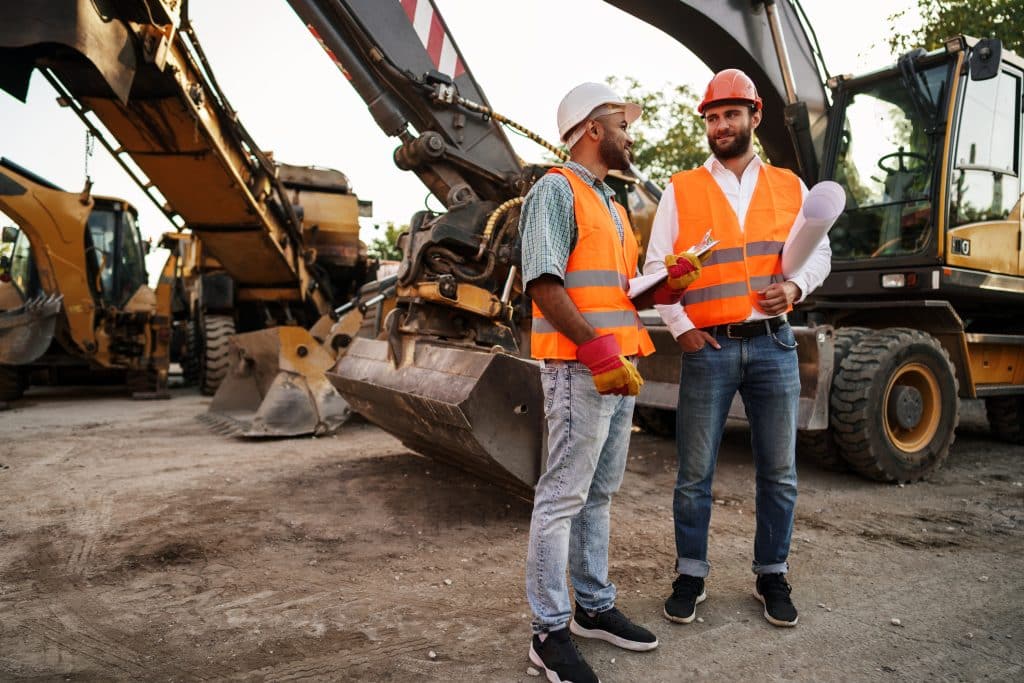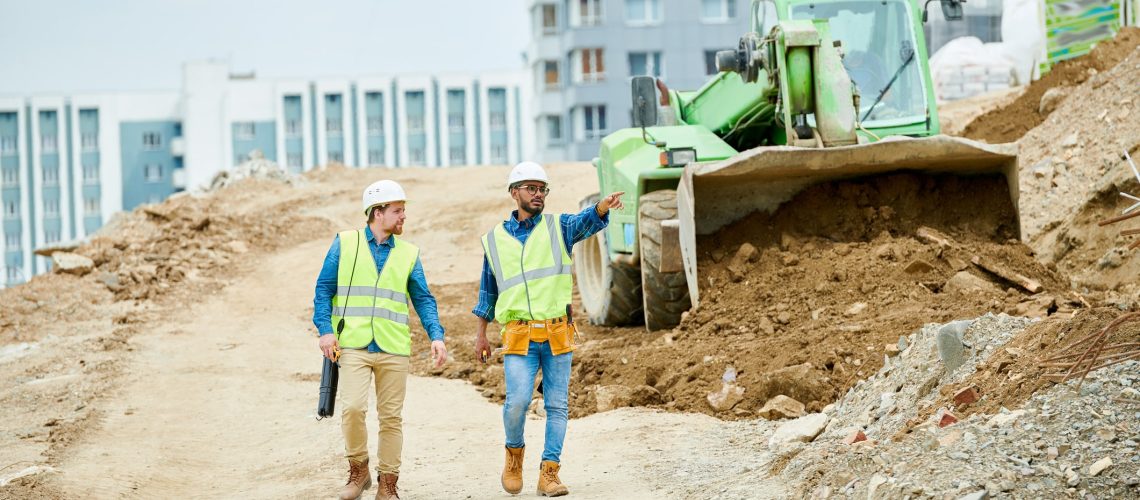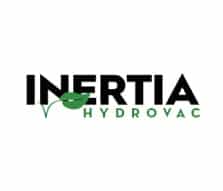
Hydrovac excavation has transformed how construction and utility work gets done across Western Canada. It’s faster than manual digging, safer than mechanical excavation, and precise enough to protect the complex underground networks woven beneath our roads and communities. But even the most advanced hydrovac truck is only as good as the operator standing behind the hose. At Inertia Environmental, we treat operator training as the backbone of every successful project — because skill, judgment, and experience matter just as much as powerful equipment.
The demand for hydrovac Edmonton services has been climbing rapidly as more industries shift away from conventional excavation methods. With that growth comes greater responsibility. Operators must be confident in their abilities, disciplined in their approach, and prepared for whatever a job site throws at them. Our training program is built around those expectations. We want operators who can think quickly, work safely, and deliver consistently high-quality results, whether they’re daylighting utilities downtown or cutting trenches in remote, rugged terrain.
The Safety Mindset That Shapes Everything
Safety isn’t a module in our training program — it’s the philosophy that guides every decision. New operators learn early that hydrovac excavation is inherently safe only when the person holding the wand understands the conditions they’re working in. Soil composition, utility depth, weather, ground stability, and crew positioning all influence how the dig should unfold. That awareness has to be instinctive, not something they think about halfway through a job.
From day one, operators are taught to read a site the way a pilot reads a cockpit. That means noticing details others might miss: the subtle shift in soil colour that suggests buried infrastructure, the way water runs across the ground after the first cut, the sound of the vacuum when the soil density changes. These observations help prevent line strikes, collapsed holes, and unnecessary disruption. Our training encourages operators to slow down mentally, even when the job demands speed physically.
Mastering the Machine, Not Just Operating It
A hydrovac truck is a complex system of pumps, boilers, tanks, valves, and high-pressure components. Being able to turn it on is one thing; understanding how it behaves under different conditions is another. Operators spend significant time becoming familiar with the equipment before they ever take it onto a work site. They learn how pressure adjustments affect clay versus topsoil, how water temperature affects frozen ground, and how to manage the vacuum system to perform efficiently without overworking the truck.
This technical familiarity pays off in two big ways. First, operators become more precise. They can dig quickly without disturbing sensitive infrastructure. Second, they catch mechanical issues early. Many job-site delays are caused by preventable equipment malfunctions, and trained eyes spot those problems before they escalate. The result is fewer interruptions, smoother workflows, and better reliability for clients who depend on strict timelines.
Training for Alberta Weather
If you’ve worked outdoors in Alberta for more than a week, you know the weather likes to make things interesting. Operators need to be comfortable excavating through frozen soil in January, sticky mud in April, and heat waves in July. Each situation brings its own challenges. Frozen ground requires careful use of heated water to avoid unnecessary erosion. Working with wet clay requires patience and finesse to avoid creating a slurry pit. And summer heat demands strict attention to hydration, equipment temperature, and operator endurance.
We train our team to understand how these conditions affect both the ground and the equipment. They learn how to prevent hoses from freezing, adjust techniques when wind reduces visibility, and dig efficiently during spring melt, when the soil can shift unexpectedly. Mastering these environmental variables is part of what makes an operator truly skilled — and part of what makes our crews so dependable year-round.
Building Speed Through Technique
Fast hydrovac work has nothing to do with hurrying. True speed comes from mastery — knowing exactly where to place the truck, how to angle the boom, how to maintain a clean cut, and when to adjust water pressure to avoid rework. We teach operators to treat every excavation like a puzzle. When they understand the layout, the soil, and the desired outcome, they can move efficiently without compromising safety.
One of the most valuable skills they learn is how to manage the ground as they dig. Keeping spoilage under control, maintaining visibility in the cut, and avoiding sloppy material all make the process smoother. Experienced operators also learn how to anticipate the next ten steps of a dig, not just the next one. That foresight allows them to work quickly without ever feeling rushed or disorganized.
Realistic Training Scenarios
While classroom training lays the foundation, the real learning happens in the field. We use controlled environments to simulate everything operators might face: tight urban spaces, sloped ground, unstable soil, unmarked obstacles, and even the pressure of a large crew waiting on the excavation. These scenarios aren’t designed to intimidate — they’re designed to build competence and calm under pressure.
Operators learn to make real-time decisions, adapt to surprises, and communicate clearly with ground crews. By the time they reach an active job site, they’ve already encountered most of the challenges they’re likely to face. And that means fewer mistakes, fewer delays, and far greater confidence.
Confidence is one of the most important outcomes of real-world simulation training, and not the loud, overconfident kind. The best hydrovac operators are calm, observant, and deliberate. They don’t second-guess themselves because they’ve already practised the difficult situations. When they arrive at a job site, they bring a steady presence that keeps the entire crew grounded. That sense of control is contagious — and it’s a direct result of intentional, hands-on preparation.
The Certifications That Shape Professional Operators
Once operators have a firm grasp of technique and equipment, we ensure they’re certified to work safely within Alberta’s regulatory landscape. Certifications such as Ground Disturbance II, First Aid, WHMIS, TDG, CSTS, and various site-specific training programs provide them with the foundation to understand hazards, respond to emergencies, and document work appropriately. But certifications are more than paperwork. They’re a signal that an operator understands the seriousness of excavation work.
Training also continues after the certificates are earned. Our teams regularly refresh their knowledge so safety stays top of mind instead of becoming background noise. New best practices emerge, new regulations appear, and new technologies evolve — we make sure our operators stay ahead of them all. Hydrovac excavation changes quickly, and we want our teams to be adaptable, not reliant on outdated habits.
Communication: The Quiet Skill That Keeps Jobs Moving
It’s easy to assume that hydrovac excavation is mostly a machine-driven process, but the truth is, the work succeeds or fails on how well the people on site communicate. Our operators learn early that clarity prevents accidents. They practise verbal instructions, hand signals, radio communication, and the art of sharing information before it becomes a problem. Because when the person holding the wand and the person monitoring the ground aren’t aligned, risks multiply fast.
Operators learn to brief a crew before the first cut, update site supervisors during a dig, and document changes that might affect future work. Clear communication also supports speed. When everyone understands what’s happening and what’s coming next, the workflow becomes smoother and far more efficient.
A Responsibility to the Environment
Hydrovac excavation is often chosen because it’s gentler on the environment than mechanical digging. But that environmental benefit only exists when operators work intentionally. Our teams learn to manage water efficiently, protect nearby vegetation, control how material is removed, and ensure debris is disposed of properly. They’re also trained to recognize when a site may have environmental sensitivities, such as proximity to waterways or contaminated ground.
By teaching operators to consider the ecological footprint of their work, we ensure that speed never comes at the expense of environmental stewardship. It’s a responsibility we take seriously because our clients trust us not just with their timelines, but with their land.
Emergency Readiness: Training for the Moments We Hope Never Happen
Every operator needs to be prepared for situations that fall outside the day-to-day routine. Powerline strikes, unexpected gas odours, unstable trench walls, equipment malfunctions — these events require immediate, informed action. Our training incorporates emergency decision-making so operators know how to respond without hesitation.
They practise isolation procedures, safe evacuation, and communication during disruptions. They learn how to shut down equipment quickly, secure a site, alert the proper authorities, and keep everyone calm until help arrives. Emergency readiness training isn’t dramatic or fear-based; it’s confidence-building. It ensures operators feel prepared, not overwhelmed, when something unexpected happens.
Learning From Experience — The Mentorship Model
One of the most valuable parts of our training program is mentorship. New operators are paired with experienced team members who understand Alberta’s soil conditions, weather challenges, and industry expectations. They pass down the insights that textbooks don’t cover: how to read the ground by feel, when to ease off pressure to avoid unnecessary erosion, how to adjust technique when water starts to pool, and how to keep a dig moving without sacrificing caution.
This relationship builds consistency across our workforce. It also builds pride. Experienced operators take ownership of the next generation’s success, and new operators step into their roles knowing they’re part of a team that values growth and professionalism.
The Culture Behind Every Hydrovac Crew
Training doesn’t end once an operator is certified. Our team culture reinforces the values that matter most: safety, accountability, precision, and respect. Hydrovac work is demanding, and operators need a supportive environment where questions are encouraged and knowledge is shared freely. We’ve built an atmosphere where everyone looks out for each other — not just because it’s good practice, but because it keeps everyone safe.
This culture fosters efficiency. When operators feel supported, they work with more focus and take more pride in the outcome. They think ahead, collaborate naturally, and maintain high standards even under pressure. That’s the difference clients notice on job sites: a crew that doesn’t just show up to dig, but shows up with intention.
Why Training Creates Faster, Safer Excavations
It’s tempting to view training as something separate from production — time spent learning instead of doing. But in hydrovac excavation, training is what enables efficient work. Operators who understand pressure control avoid costly rework. Operators who know how to manage spoil prevent delays. Operators who communicate clearly prevent shutdowns and injuries. And operators who can read a site correctly keep projects moving without surprises.
In other words, safety and speed are not opposites. They’re partners. One makes the other possible.
What This Means for Our Clients
When you hire Inertia Environmental, you’re not just getting a truck and an operator. You’re getting someone who’s trained to work strategically, respond calmly, and deliver consistent results. Someone who treats your site with the same respect they bring to every job. Someone who understands the responsibility of digging where utilities, infrastructure, and safety converge.
Our training program ensures clients receive a level of reliability and professionalism that’s rare in the industry. Projects stay on schedule, risks remain in check, and the work gets done precisely as planned.
Hydrovac excavation is a technical craft, but it’s also a discipline built on preparation, judgment, and respect for the work. At Inertia Environmental, we invest deeply in our operators because the quality of every excavation depends on the person holding the wand. Skilled, confident operators create safer job sites, faster turnaround times, and cleaner results — and that’s what clients come back for.
A well-trained hydrovac operator doesn’t just dig a hole. They protect utilities. They protect timelines. They protect people. And that commitment begins long before they ever pull onto a job site.
If your next project requires precision, reliability, and trained professionals who take safety seriously, you already know who to call.


